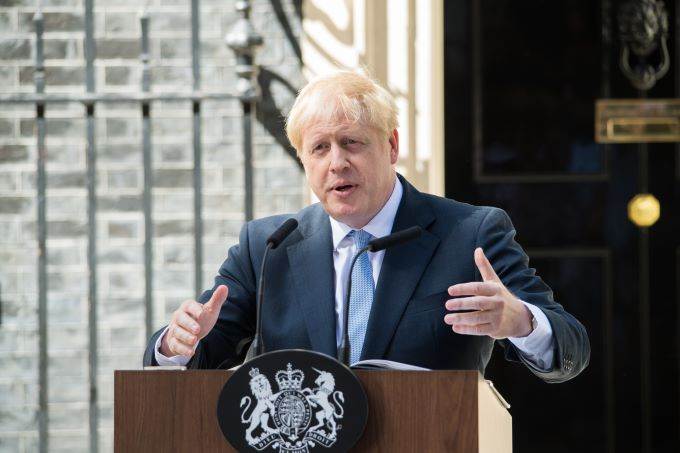 European Union negotiator Michael Barnier announced on Thursday that it's time to start negotiating with the UK, making a reference to the fact that the UK finally left the European Union, and to the negotiations that are expected to begin on Monday.
European Union negotiator Michael Barnier announced on Thursday that it's time to start negotiating with the UK, making a reference to the fact that the UK finally left the European Union, and to the negotiations that are expected to begin on Monday.
The United Kingdom officially left the European Union on January 31 at 11 pm local time, which, despite being an expected event still caused a lot of doubts regarding the future of the economic and diplomatic relationships between the United Kingdom and the European Union. As we all know, the British people went out to vote in June 2016 and they expressed their desire to leave the union, which caused a very long political battle not only between the UK and the EU (concretely regarding the conditions in which the UK would leave the EU) but also between the pro-leave and pro-remain political forces inside the UK.
Now after years of uncertainty, the UK's exit from the European Union is a reality, though that doesn't mean that the step forward has mitigated the unease among analysts and the market actors regarding the future, as now the UK has entered into a transition period and needs to negotiate with Brussels matters concerning its future commercial and political relationships with the bloc.
Meanwhile, the UK will remain inside the customs union during the next 11 months as well as a member of the single market. Nevertheless, considering that the UK will stop enjoying this privilege after the transition period ends, there is still a chance of leaving the union without a free-trade agreement, which could bring negative consequences to the United Kingdom's economy as well as affecting the free-traveling of UK citizens to countries that are members of the Union.
Britain's prime minister Boris Johnson pledged to not give concessions to Brussels when the struggle with the European Union's leadership resume. Sources claim that the British government aims for a trade deal that will be as good as the one the EU has with Canada, which took about seven years of difficult negotiations. On the other side, Brussels also aims to insist on imposing their standards, among them demanding the UK to comply with the EU's labor, social and environmental regulations.
“There are only two likely outcomes in negotiation, a free trade deal like Canada or a looser arrangement like Australia – and we are happy to pursue both,” said a Downing Street source
However, EU sources said that an agreement like the one they have with Australia is impossible to reach in the current timeframe.
"It would be materially and politically impossible,” warned the EU source against this alternative.
The Pound Sterling benefited from the Brexit's materialization, gaining 0.87 percent on Friday against the US dollar, after gaining 0.57 percent during the previous session. Conversely, it also gained 0.24 percent against the Euro on Friday, after gaining 0.38 percent during the previous session.
Despite this, many analysts expect the pound sterling's price to fall in the long run, especially because, given the excessive anticipation, the market probably already priced the exit of the UK from the EU, as well as because of the uncertainty associated with the transition period. Others attribute the bullish sentiment in the market to the recent Bank of England's cash rate decision, as they announced that they would leave the rates steady at 0.75 percent signaling a more optimistic attitude regarding the future of the UK's economy.
